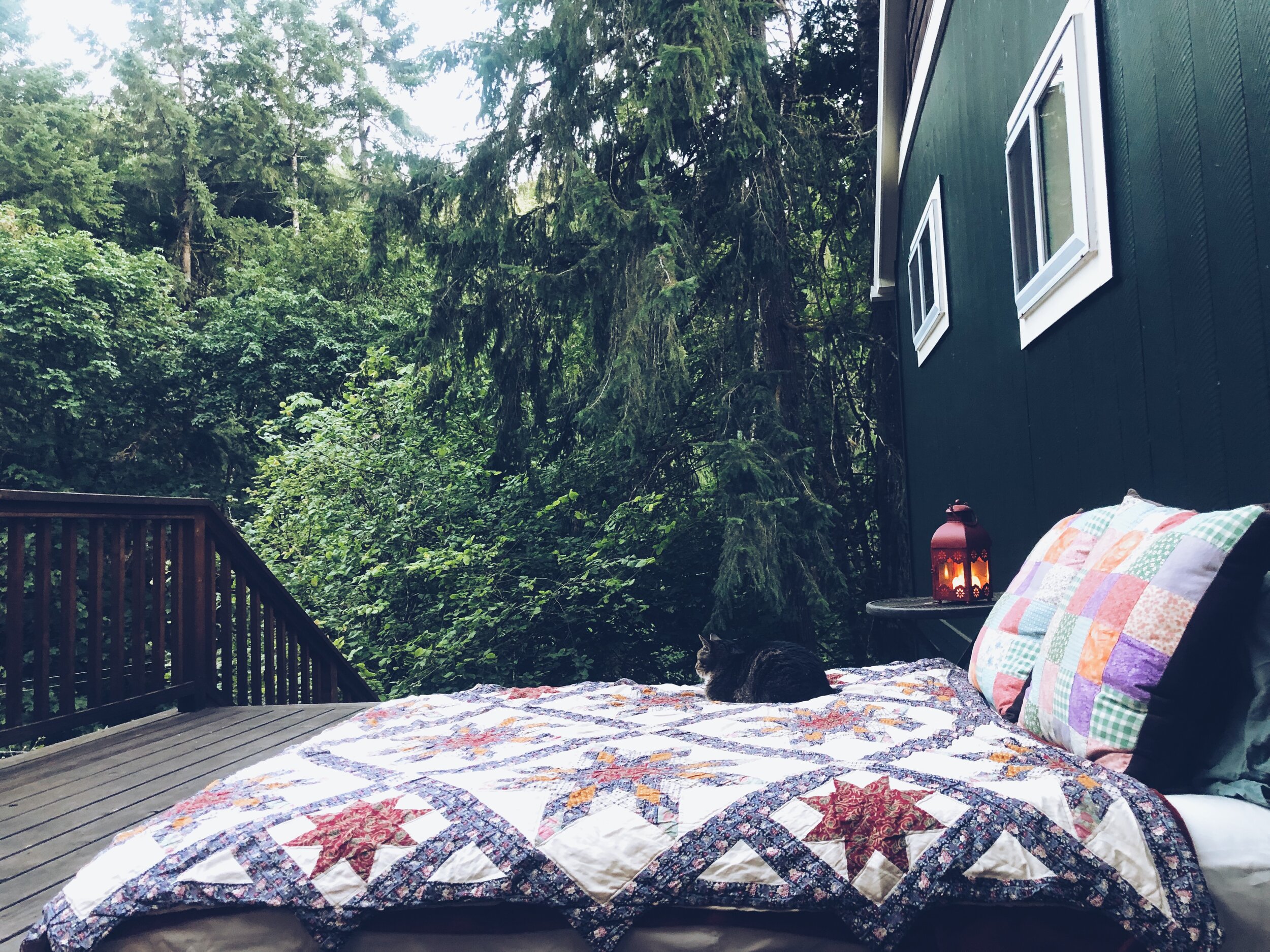December, Fourth week :: 2021
/The chair where the owl perched is covered in snow now, but I don’t ever pass it without a tiny uptick in my pulse, a split second when I wonder if that blocky brown shape will be waiting there, will fool my eye again. At first, I’d thought a limb had fallen from the apple tree in the night and somehow landed upright on the arm of the adirondack chair, but a moment later, it swiveled its impossible head and fixed me with an amber stare. Twice this autumn, it came to this spot; two days in a row I stood frozen, pinned like a moth under its gaze until at last, it blinked, unfolded its wings, and disappeared into the trees.
Biologists say that an owl sighted during the day means that a disturbance has occurred - it has suffered a loss of habitat, a disruption in hunting patterns, or maybe, a lost mate - an affirmation of the folklore of North American Indigenous peoples who say the owl is a bad omen, a messenger of death. I joked about it with friends later, my own early morning harbinger of doom perching on a pink adirondack chair.
I don’t know if the owl I saw is one who regularly lives in our woods. During most of the year I can lie in bed and hear several calling through the open window. Their whoo-whooing among the night trees is as reassuring and comforting as this daytime appearance was unsettling. Despite my joking, the weeks after the owl showed itself to me were a storm of loss. Our new dog was hit on the road and killed instantly, relationships frayed, depression stalked loved ones, plans upended and collapsed, I lost months of writing and I couldn’t find the nerve to sit down and write again. I’m not particularly susceptible to omens and signs, but the owl unnerved me more than I’d like to admit. I feel the ghost of it hovering around that chair every morning I go by. Its remembered shape is a fixed point, a talisman of my own vulnerability, but also a symbol of another year of disruption and loss for all of us. It hovers over all the breakdowns we’ve endured, the painful exposure of our true beliefs, the shock of our disconnections and malaise, the revealed power of the market, the media, and the moronic, our fear of getting sick, our proximity to death. Of course I flinch when I think of seeing it again - how much more loss will we face?
A great deal, most likely. I feel the world I once knew passing by, receding into the past. It is not the owl I flinch from, it is the demand that I look truth in the eye and see it as it really is. I want to continue on in my comfort, believing untenable beliefs, assuming my neighbors and I agree, feeling confident that someone somewhere will make disease and extinction and turmoil go away, but that luxury is past. The owl stares at me without blinking and it won’t look away.
Strangely, now that the shock of these realities has settled in, I arrive at the end of the year feeling a little steadier. The owl has come. Change is here. Death has arrived. But I am strong enough to live within it. I know what lies ahead requires courage, as well as creativity and hope, and that’s what I want to mine in 2022.
As MFK Fisher wrote: “When the wolf is at the door one should invite him in and have him for dinner.”
I’ll be writing more about that and the image/theme I’ve chosen for the new year later. In the meantime, I hope you are enjoying this quiet-ish week between the holidays. I’m looking forward to a new year of sharing and learning with you all.
Happy New Year!
tonia










